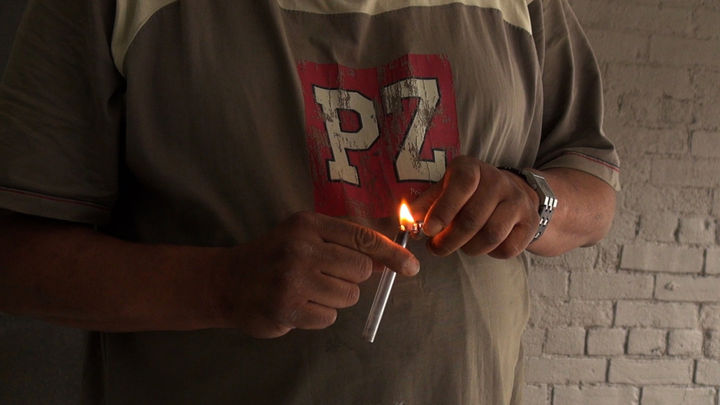Sometimes the best art happens serendipitously.
This was certainly true for The Stairs, a new Canadian documentary that premiered at TIFF last month. The film offers a rare, poignant and necessary glimpse into Regent Park, a Toronto community usually associated with high crime and poverty rates. What started as a simple project for director Hugh Gibson — making educational shorts for the neighbourhood’s community health centre — ended up becoming his first feature-length film.
It all started with Gibson’s nonjudgmental approach in making the short videos — he wanted to empower the community members to tell stories in their own words.
“It wouldn’t be someone from higher up in the agency,” Gibson explains. “It would be one-on-one. Spend a little time with them and you learn what they’re all about.”
Over time, the director built trust with community members — mostly sex workers and crack users, some of whom were employed by the health centre to perform peer support outreach. Gibson soon realized the power in filming his subjects, as their lives are so regularly stigmatized or ignored by popular media.
“I tapped into something where people who felt they didn’t have a voice could express things about their lives, what they’d been through, and what these programs meant to them in terms of treating them with dignity.”
Then one day Gibson met Marty Thompson, a peer support worker who had used crack for most of his life.
“He took me on a tour of the neighbourhood up to Allan Gardens,” Gibson explains. “He’d say, ‘Here’s the public housing where I grew up, here’s where I used to sleep in the stairwells.’ After half an hour I thought, ‘Holy crap, this could be a movie.’ He’s amazing. I never forgot that.”
In another interview, Thompson surprised Gibson with a poem he’d written.
“I thought, ‘This is transcending what we’re after in the moment,'” says Gibson.
Not long after, Gibson started shooting his longer-form documentary. It took five years to complete, but he deliberately chose a process-driven approach that allowed him to “shoot a little, edit a little.”
“I think it was good that they saw I wasn’t going away,” he explains. “That I wanted to be there.”
He also tailored the filming process to reflect the needs of the community. “I knew I had incredible characters,” he says. “I was going to trust that for a period of time and just see what happened — start with some interview subjects and see where it lead.”
Gibson realized flexibility was a necessary trait in all aspects of making the film. Interviews and appointments could be cancelled last minute. One of the main subjects passed away a year into the shoot, while another, Greg Bell, disappeared for a year following a traumatic experience with police brutality. Equally important for Gibson was mastering a dexterity in shooting — sometimes he had to be quick and invisible because anything could happen. “You have to roll with the punches,” he says.
The result of all this work is a truly empathetic and emotionally-resonating picture of a community long ignored by Torontonians. Certainly, the subject matter of The Stairs is dark — but as Gibson describes, the wicked senses of humour and intelligence of his subjects provide a humane gateway into understanding their world. The poeticism of their lives and natural expressions is reflected in Gibson’s crafting of the film. And additionally, he emphasizes, their roles in life are equally eye-opening. People like Roxanne Smith, whose life is captured in the film, have families and work hard to support their community.
“They totally defy preconceptions about that world,” Gibson says with a smile. “Grandmother, grandfather, poet. These aren’t the kinds of things you think of when you think ‘sex worker,’ for example. I saw an opportunity to bring something different in terms of a human touch.”

